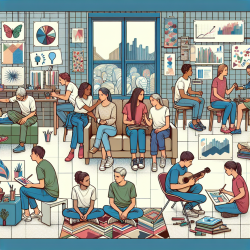In the realm of special education and language therapy, we continually seek ways to enhance our practices and outcomes for all students, especially those from minority language backgrounds. A pivotal piece of research, highlighted in a letter by Georges Duquette, Ph.D., Assistant Professor of Education at Laurentian University, sheds light on a critical aspect of dual language development that demands our attention and action.
For years, some language specialists have advised parents and educators to prioritize English reinforcement at home and in school, sometimes even suggesting that parents switch to speaking English at home. This advice, though seemingly logical, contradicts decades of research in bilingual education. Studies from the past 20 years or so, including those by Baker (1987), Cummins (1978, 1981, 1984), and Genesee (1987), have consistently shown that fostering a child's first language is crucial for successful development in both their native and second languages.
The misconception that bilingualism could hinder the acquisition of a majority language stems from outdated views. We now understand that skills developed in the first language can significantly enhance second language learning. If the foundation in the first language and home culture is not robust, children may face difficulties in their language development.
This insight challenges us as educators and therapists to reflect on our professional practices. It is essential to recognize that the needs of minority language children are not problems to be solved but opportunities for enrichment and growth. Assessing and supporting these students require sensitivity to their linguistic and cultural contexts, ensuring that their unique needs are met with professionalism and respect.
The letter to the editor by Dr. Duquette emphasizes the importance of embracing our professional responsibility to uphold research-based practices in bilingual education. Acknowledging the limits of our professional skills and resources is the first step toward addressing the needs of minority language children effectively. By fostering an environment that supports the development of both the first and second languages, we can contribute to a more inclusive and equitable educational landscape.
As special education directors, therapists, and educators, we must commit to ongoing learning and adaptation of our practices based on current research. Encouraging the development of a child's first language alongside English not only supports their linguistic growth but also their cultural identity and self-confidence. Let us move forward with the knowledge that our efforts to support dual language development are grounded in solid research and professional integrity.
To deepen your understanding of this important issue and to explore the research further, please follow this link: Letter to the Editor.










